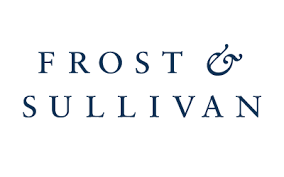[An interview with Sang-hyun Ahn, CEO of addd] "addd" Develops an OOH Ad Effectiveness Measurement Solution
![[An interview with Sang-hyun Ahn, CEO of addd]](https://cdn.asp.events/CLIENT_CloserSt_D86EA381_5056_B739_5482D50A1A831DDD/sites/BDWS-2023/media/libraries/exhibitor-press-releases/647903-1671602677421988.jpg/fit-in/700x9999/filters:no_upscale())
Maximizing the efficacy of offline advertisements... AI-powered technologies to transform the whole sector.
addd is a startup that has developed technology to measure the effectiveness of out-of-home advertising (OOH) using artificial intelligence. addd's AI solution, "addd-i," uses cameras attached to billboards to determine how many pedestrians have noticed the advertisement and then extracts non-identifiable data such as gender ratio and age group and delivers it to advertisers. It can improve the effectiveness of ad execution. Recently, it has evolved into a smart mobility advertising medium that sends ads categorized according to pedestrian characteristics such as location and time of day by attaching displays to trucks. We followed in addd's footsteps.
Ahn Sang-hyun, CEO of addd, explained his business strategy at his office in the Yeoksam-dong neighborhood of Gangnam-gu, Seoul, on the afternoon of Dec. 15.
Ahn first started his business in 2013. At that time, he created artificial intelligence software that provided customized content for top-class students, which was very popular with parents. After quitting the cram school business, he took on web and app development in the IT business. “At that time, technology-based startups were popping up one after another, and I had many opportunities to observe them. I realized that I could do the same,” he said. Having studied at KAIST from undergraduate to doctoral level, he was fortunate to have many outstanding colleagues around him. He decided to start a business with them.
In April 2018, the company was incorporated, but there was a gap of one and a half years before it was registered as a business. This was due to the problem of securing the original technology. At the time, most of the original AI technology was at Google. “As Google continued to distribute open APIs, it became difficult for domestic operators. We felt that we had to secure the original technology, even if it was a minor technology that didn't receive much attention,” said Ahn. If they couldn't secure the original technology, they were prepared to close the business. A year later, Ads had advanced its de-identified data processing technology to the point where it could perform behavioral analysis on the data. He was convinced that Google would not be beaten. This was the moment when the business really took off.
But it wasn't always about advertising. We needed to find an area where our de-identified data processing technology would be most effective. We decided that offline advertising would be a good fit. Our initial ideas were “Dalgo S,” which monetizes sticker ads on regular cars, and “Dalgo T,” which monetizes ads on trucks. By analyzing data from telecommunications companies and demographic data from Statistics Korea, they were able to estimate the effectiveness of the ads by inferring the number of people moving around at certain times. “However, advertisers are more motivated by accurate numbers than estimates,” says Ahn. That's why we came up with 'DalgoD,' which analyzes the actual effectiveness of digital signage (displays installed in public or commercial spaces) ads with cameras.”
The problem is, they're all regulated. All three projects required regulatory sandboxes to proceed. “It was illegal to make money from non-commercial vehicles, and we also had to deal with privacy issues,” says Ahn. All three had hurdles, but I think it was a good thing. We were able to demonstrate enough without interference from other players,” says Ahn.
Ad CEO Ahn Sang-hyun poses in front of various certificates and patents. Photo by Jonghyun Lee
Ahn Sang-hyun poses in front of various certificates and patents. Photo by Jonghyun Lee
#Ad aims to become the 'Google of offline'
As Ahn expected, the market demand was significant. Every time addd got special approval, he was inundated with inquiries. “DALGO D, which received special approval in September this year, has already received letters of intent from several clinics, mainly plastic surgery centers. addd-i is also expected to be installed everywhere from January next year, thanks to requests for collaboration from various places such as Seoul subway and hypermarket distributors.”
The advantage of addd-i is that there are no cultural barriers. “Our technology can be applied to digital signage advertising around the world,” says Ahn. We believe that it will not be a problem to expand overseas, except for regulatory issues.” From 2023, the company plans to enter countries in Asia where outdoor advertising is developed, such as Japan and Hong Kong.
Ahn says the company is confident of its competitiveness, even though domestic companies will be able to enter the market if the law is revised. In the case of addd, which received special approval for the sandbox, it was because it was able to fully train its AI during the demonstration period. “Other companies can't extract data like we can,” says Ahn. With a regular image camera, you can't track if it's the same person coming in and out of the screen, so it's not as accurate,” says Ahn. addd-i's vision cameras are much more specific because they take pictures of the eyes, ears, nose, shoulders, etc. to extract de-identified data and track overall eye movement.
As we accumulate data, there's more we can do. In the future, addd's goal is to platform offline ads just like online ads. “If you want to put up a big signage ad in a place like Gangnam Station in Seoul, you have to wait for a year. For online ads, we have data, so we can price them by the hour, but that's not possible offline,” he said. However, once ad effectiveness data is measured, offline ads can be segmented by time of day and bid on. This allows you to maximize the effectiveness of your ad delivery.
's technical excellence and competitiveness have already been recognized. It has been selected as a 'First Penguin' by Futureplay, TIPS (Private Investment-led Technology Startup Support), and KODIT (Credit Guarantee Fund), and has attracted attention through demonstrations at the 2022 International Consumer Electronics Show (CES2022). “When the first big money came in through TIPS, I was scared to death. I thought I was stuck. But when the first sales came in, I was convinced. “If someone is willing to pay for it, this is something we can do."
For now, scaling the infrastructure quickly is a top priority. The company believes it's better to promote the ad service to a wider audience than to make immediate profits in order to enjoy first-mover advantage during the sandbox period. “Once you use it, you can't help but be attracted to its convenience and efficiency,” said Ahn. Just as the online advertising market has grown more than 30 times in size since Google entered the market, we believe that the offline market has enough potential.”
“We want to make the complex offline advertising market easy and convenient, and we want to become a platform that can go beyond providing data and mediate between advertisers so that they can advertise wherever they want and whenever they want with a few clicks on the Internet,” said Ahn.


 Cloud & AI Infrastructure
Cloud & AI Infrastructure
 DevOps Live
DevOps Live
 eCommerce Expo | DMEXCO Asia
eCommerce Expo | DMEXCO Asia

)
)
)
)
)
)
)
)
)
)
)
)
)
)
)
)
)
)
)
)
)
)
)
)
)
)
)
)
)
)
)
)
)
)
)
)
)
)
)
)
)
)
)
)
)
)

)
)
)
)
)
)
)
)
)
)
)
)
)
)
)

)
)
)
)
)
)
)
)
)
)
)
)
)
)
)
)

)
)
)
)
)
)
)
)
)
)
)
)
)
)
)
)
)
)
)
)
)
)
)
.png/fit-in/1280x9999/filters:no_upscale())
)
)
)
)
)
)
)
)
)
)
)

)
)
)
)
